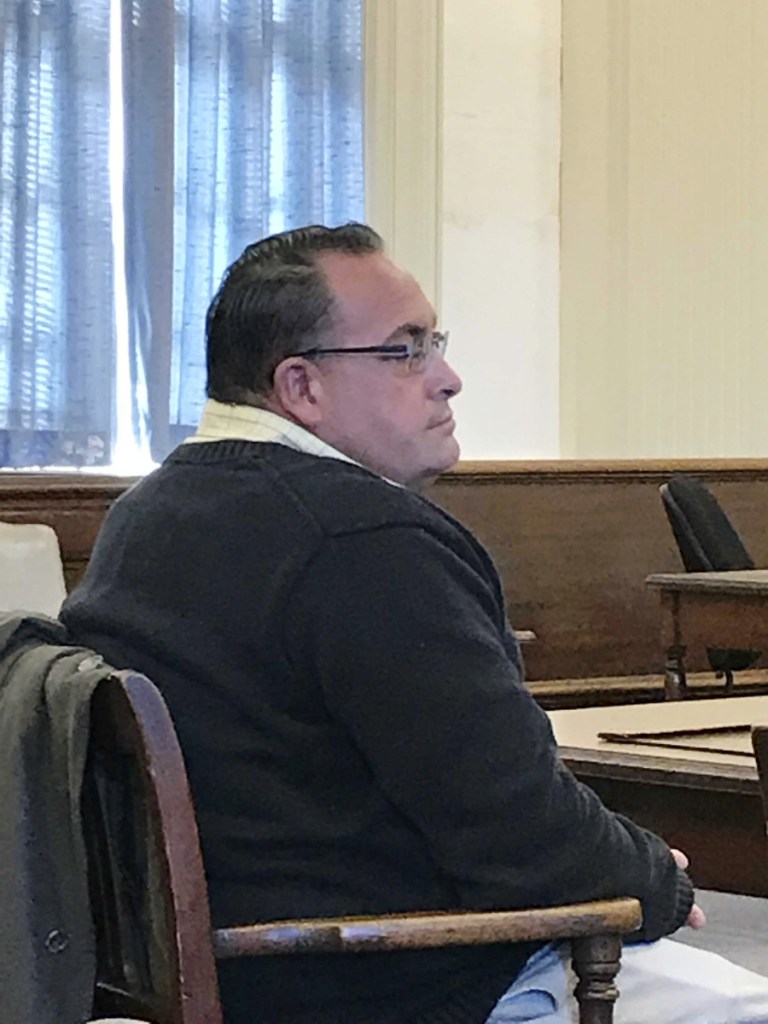ALFRED — Customers who lost money when they prepaid an oil dealer for fuel they never received will have to make do with restitution of 60 cents on the dollar following a court settlement Monday.
Nicholas Curro operated three heating oil companies in York County that sold prepaid oil plans in 2007 but never delivered the fuel to customers. Curro was found guilty of violating the state’s unfair trading practices law in 2009 and the state identified 313 customers who were owed money. A year later, officials worked out a deal that called for Curro to pay $394,000 in restitution, plus a fine of $250,000 that would be cut to $25,000 if he paid the restitution within five years.
But Curro only paid $10,500 and the matter has been tied up in court ever since.
“All of us people, we have no power or say in the matter,” Henry Thiffault of Alfred said of the deal, which would return about 60 percent of the $3,000 worth of oil he bought for his house and his son’s that was never put in the tanks.
“I’ll be dead by the time he pays,” grumbled another man as he left the courtroom after the hearing.
Just before a hearing to work out a payment arrangement with Curro in York County Superior Court, state officials said they had a new deal that calls for Curro to pay $2,500 a month until he pays the fine amount of $250,000.
Linda Conti, chief of the consumer protection division of the Maine Attorney General’s Office, said the money will technically be a fine, but the payments will be distributed to customers owed restitution. She said Curro has repeatedly threatened to file for bankruptcy, and it’s more likely that a bankruptcy court would wipe out the restitution payments than a court-imposed fine.
The amount received will be split on a proportional basis; payments to customers will likely go out once a year, she said.
Jack Gobe, a retired police officer who lives in North Berwick, said he’s not surprised the way the deal worked out. “I never expected we’d get everything,” he said.
Gobe said he paid Curro $1,000 for oil that was never delivered.
“I’m one of the little ones,” he said.
Thiffault said he was disappointed to learn that customers won’t get full restitution and unhappy that the lawyers for the state and Curro worked out a deal without consulting with the customers who lost money.
Conti agreed that the deal wasn’t great compared to what Curro was supposed to pay in the original settlement worked out in 2010, but said it should ensure those who lost money will at least recover some of it.
Conti said she didn’t know why criminal charges were never filed in the case. She said information her office had was turned over to Biddeford police at the time that her civil case went to trial.
In a filing that led to Monday’s hearing, state officials had planned to ask Superior Court Justice Wayne Douglas to order Curro to make payments of $75,000 a year until he paid both the restitution and fine, but Conti said that Curro made clear he would file for bankruptcy rather than pay the restitution.
The filing said that most of the assets of Curro and his wife, Lisa Curro, are in Lisa Curro’s name, including the house where they live. Another house they own and rent is in both Nicholas and Lisa Curro’s names, but the state said the mortgage, liens and other encumbrances likely offset any of Nicholas Curro’s equity in that house.
Lisa Curro also has a trust from her late parents and, in December, she received approval from Biddeford to set up a 12-lot subdivision on the trust’s land adjacent to the Saco River.
The filing also said that Lisa Curro, in a loan application to buy a pontoon boat in 2005, said she had assets of more than $3 million, but those assets would be out of reach in the settlement, since none are in Nicholas Curro’s name.
She also owns a tree-cutting service, NPC3, and Nicholas Curro – whose initials make up part of the firm’s name – works for that company. According to state officials, he reported income of more than $100,000 a year from 2013 until 2016, but in 2016, when the state began proceedings to try to force him to pay some of the money he owed, he reported a net operating loss of more than $27,000 and claims to owe least $160,000 in credit card debt and more in state and federal income taxes.
The filing also said that Curro turns over his NPC3 income to his wife and they pay household expenses from it, including a total of nearly $2,250 a month for three leased vehicles, private school tuition for his son and payments on the pontoon boat.
Douglas told Curro that his case will come back quickly to his courtroom if the payments aren’t made.
“This matter will be placed on the top of the court’s docket for action” if payments are missed, Justice Douglas said. “This case has gone on far too long.”
Edward D. Murphy can be contacted at 791-6465 or at:
emurphy@pressherald.com
Send questions/comments to the editors.



